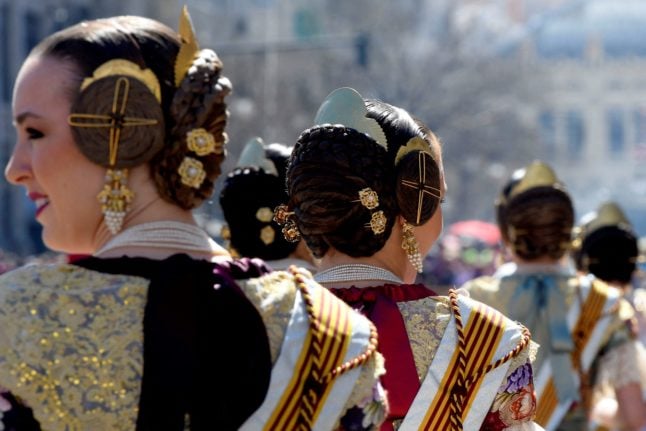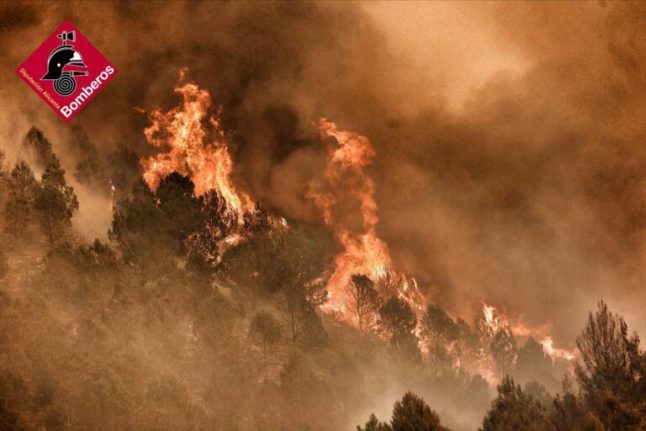Paella with chorizo (or anything non-traditional)
Valencians will proudly tell you that paella originated in the Valencia region, and they’d be right. The first written recipes date back to the 18th century, though historians believe this classic of Spanish gastronomy dates back much further than that, and existed for possibly centuries before as a rural dish that threw together ingredients to hand in the region, namely rabbit, chicken, rice, and green beans.
However, Valencians are pretty particular when it comes to paella recipes, as British celebrity chef Jamie Oliver found out a few years ago when he put chorizo in his recipe and caused an internet meltdown.
Adding anything non-traditional to a paella, especially chorizo, will undoubtedly lead locals to dismissively describe it as mere arroz con cosas (rice with stuff).
READ ALSO:
- Chorizo in paella? Go back to cooking school Jamie Oliver
- Ten ingredients you should NEVER have in a real Spanish paella
Calling the pan a ‘paellera’
That in mind, don’t call the huge pan used to make paella a paellera, as some people mistakenly do. This is another sure way to rub a Valencian up the wrong way, because a paella is actually both the dish and the pan. This is a bit of a linguistic sore point for Valencians, as places like Amazon and even El Corte Inglés advertise paelleras.
A real paellera, for those interested, actually refers to the woman or man who makes paellas (who would never, ever dream of adding chorizo!).
Saying Las Fallas are loud/annoying/overrated (or anything negative)
Closely following paella when it comes to Valencian pride is las fallas, the city’s famous fire celebrations. Las Fallas, for those who haven’t ever been, is essentially a three week street party with fireworks and the burning of huge papier-mâché figures known as ninots.
Las Fallas comes from a centuries-old tradition of fire, humour, satire (ninots of celebrities and famous figures are burned) and community spirit (often each neighbourhood will have its own falla or club). However, the main thing about fallas is the noise, specifically the fireworks.
Every day at 2pm there’s the mascletá, a huge, incredibly loud firework display outside the town hall, and the rest of the city is filled with the booms, bangs, whizzes and roars of fireworks for most of the month (and most of the night).
For some Valencians, fallas is a bigger deal than Christmas, so don’t criticise it, even if you really don’t enjoy it. To do so would be like questioning their sense of self and identity, their sense of ‘Valencianess’. It would be like telling a Sevillano that Semana Santa is a bit of a drag… good luck with that.
However, say it quietly, but some Valencians agree and actually leave town themselves during fallas.
READ ALSO:
- Seven things you should never say to a Catalan person
- Ten things you should never say to an Andalusian
Say Valenciano is a Catalan dialect
Accusing Valencians of being southern Catalans (Catalanes del sur) or speaking a dialect of Catalan is another surefire way to annoy them.
Though Valencian isn’t widely spoken in the city, in the towns and villages around the wider Valencian Community, it’s still very common and locals take great pride in speaking it (regardless of how linguistically similar it is to Catalan!).
READ ALSO: Do I need to learn Valencian if I live in Spain’s Valencia region?
Criticise the oranges
Valencian oranges are famous, right? Not only are they delicious, but orange trees line the streets around the city (not that you should actually eat those) and make it very picturesque.
Like with paella, criticising Valencian oranges would be a serious affront to Valencian identity and gastronomy — don’t do it!
READ ALSO: Why are there so many blooming oranges in Valencia?
Turn your nose up at horchata
Staying on that theme, saying that you don’t like horchata is another faux pas in Valencia.
Horchata, for those who haven’t tried, is a cold, refreshing drink made with sweetened tiger nuts, and usually dipped with long bits of pastry called fartons.
Ask if they are all corrupt
Valencia has, like many parts of Spain and the world, had its fair share of corrupt politicians and public figures over the years. In fact, in the 90s and early 2000s it became a bit of a stereotype and stain on the Valencian brand.
It’s true that there have been quite a few corrupt politicians, from former regional president Francisco Camps to ex-mayor Rita Barberá, but that does not reflect at all the average Valencian, who as a rule is very, very honest.
READ ALSO: Is Spain as corrupt as it was a decade ago?
Ask if they’ve been to La Ciudad de las Artes y las Ciencias
Of course they have, it’s arguably the most famous attraction in Valencia!
However, the City or Arts and Sciences is not something that many Valencians would visit or even think about in their day-to-day lives. Asking them about it is probably something they’ve heard 1,000 times before from foreigners.
Asking if they know Calatrava personally or say that he is the only famous Valencian
That in mind, one thing that annoys some Valencians is the claim that world-famous architect Santiago Calatrava (the architect behind the Artes y Ciencias complex) is the only famous Valencian, or asking if they personally known him.
For those less up to speed on Valencian celebrities, locals will be quick to remind you of painter Sorolla, composer Joaquín Rodrigo, fashion designer Mariscal, singer Camilo Sexto, TV presenters Pablo Motos, Arturo Valls and Nuria Roca, footballers Andrés Palop and David Albelda as well as tennis stars Juan Carlos Ferrero and David Ferrer, just to name a few.



 Please whitelist us to continue reading.
Please whitelist us to continue reading.
Member comments